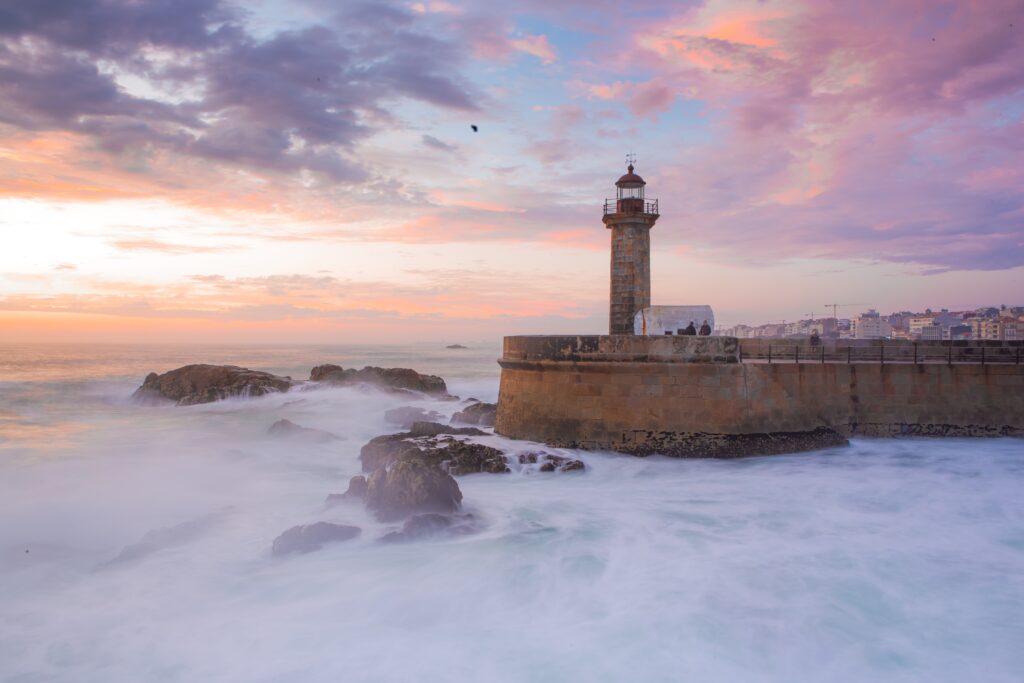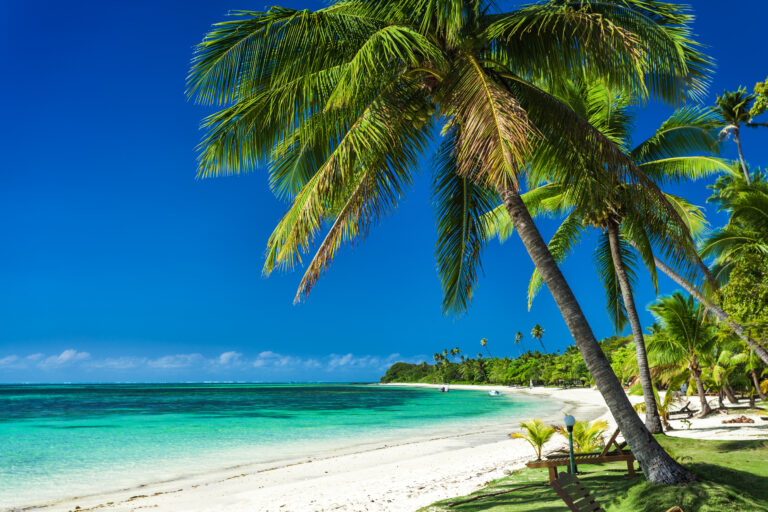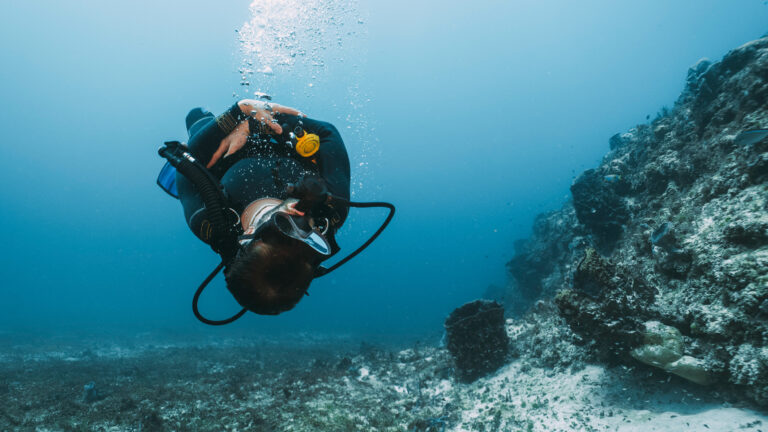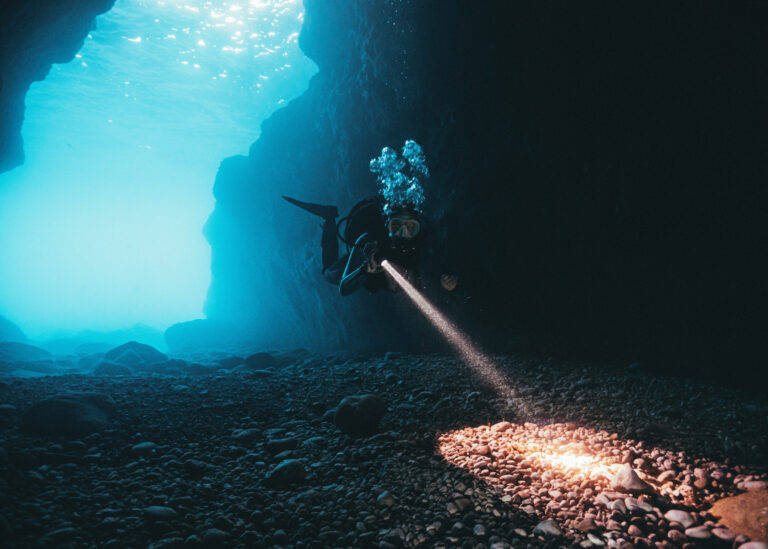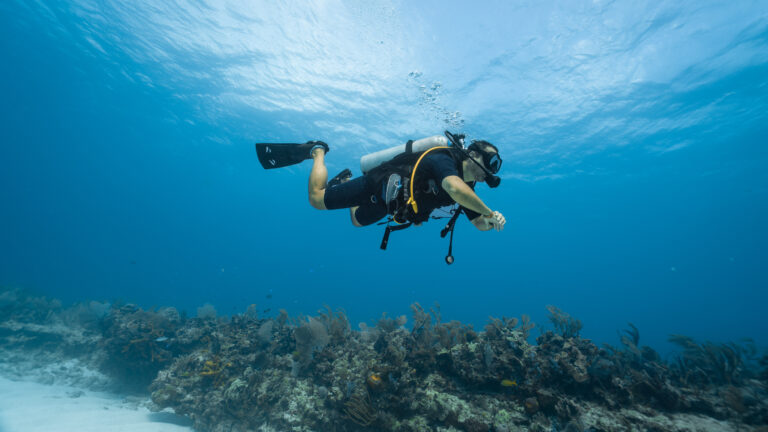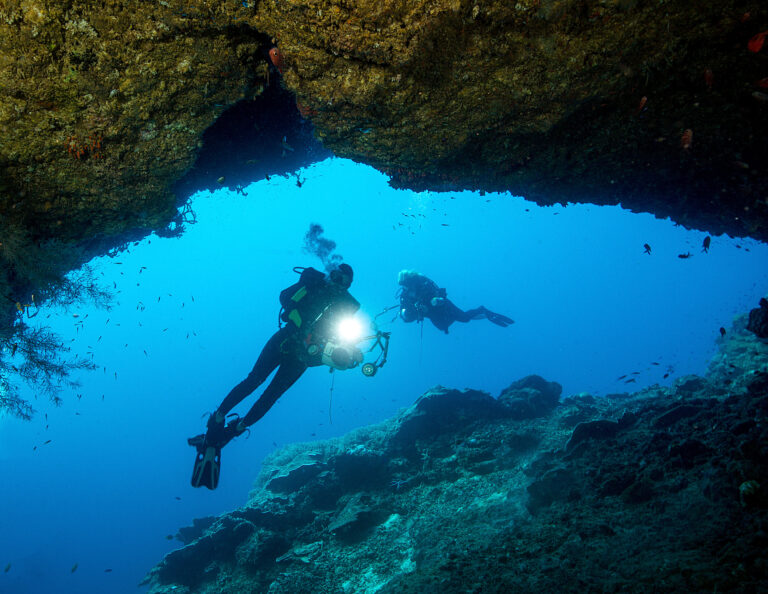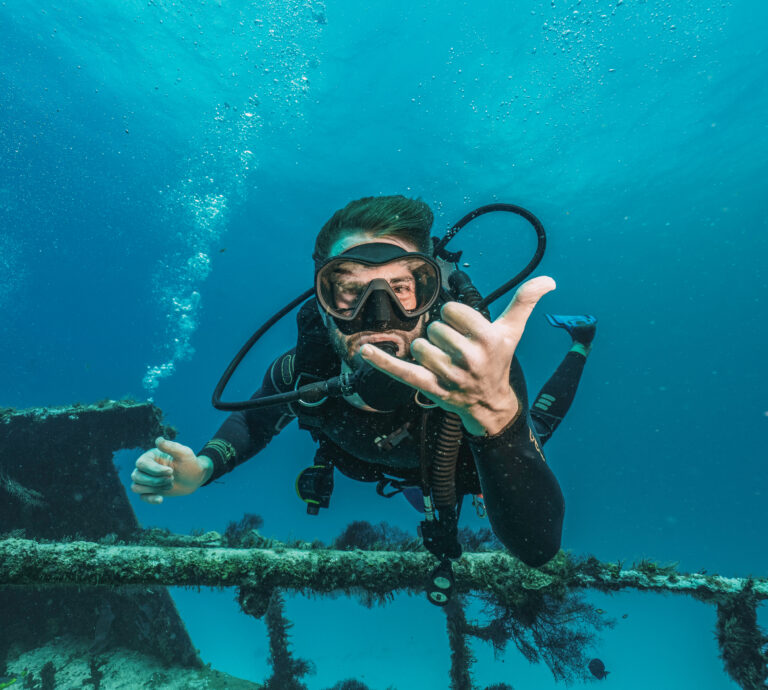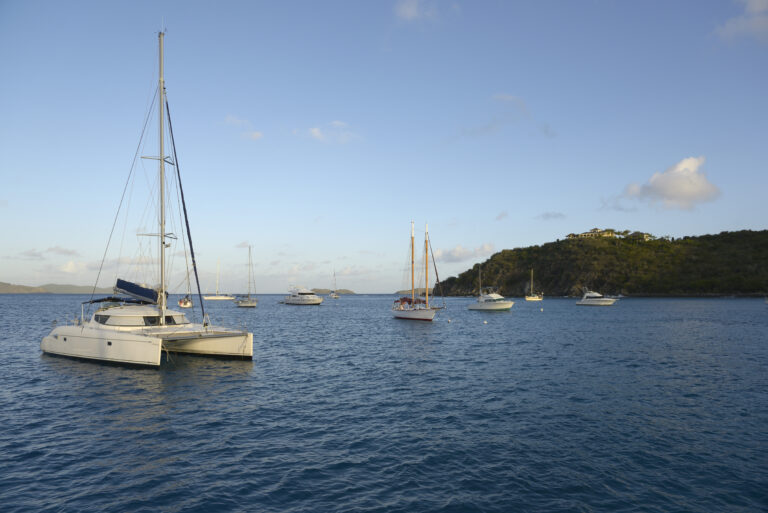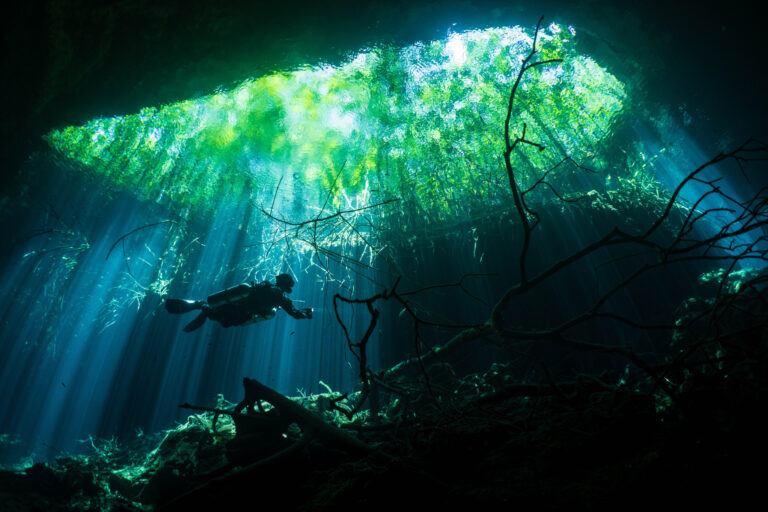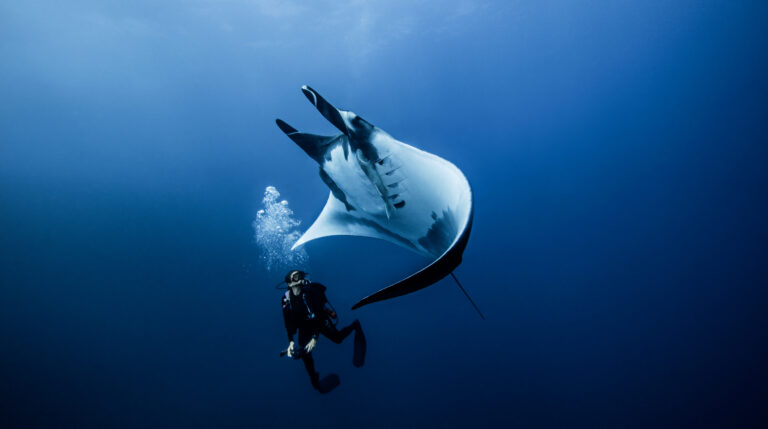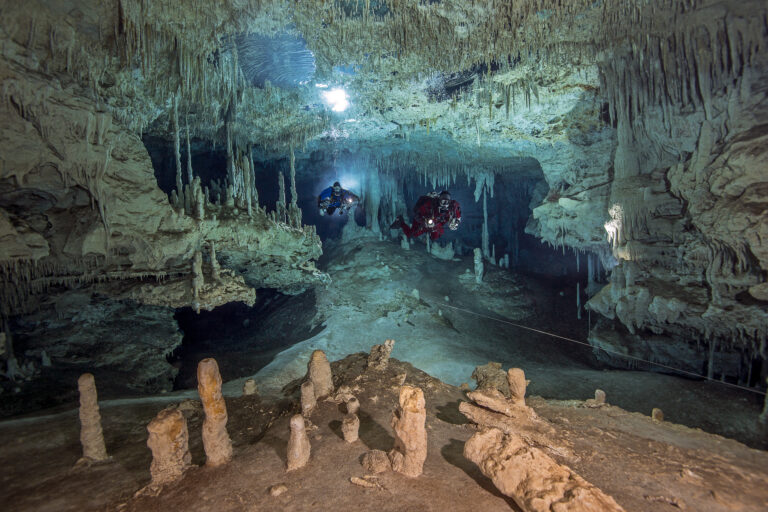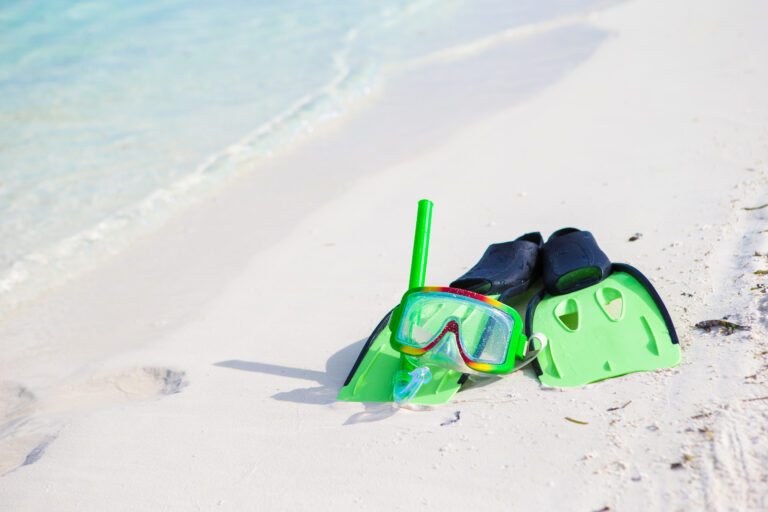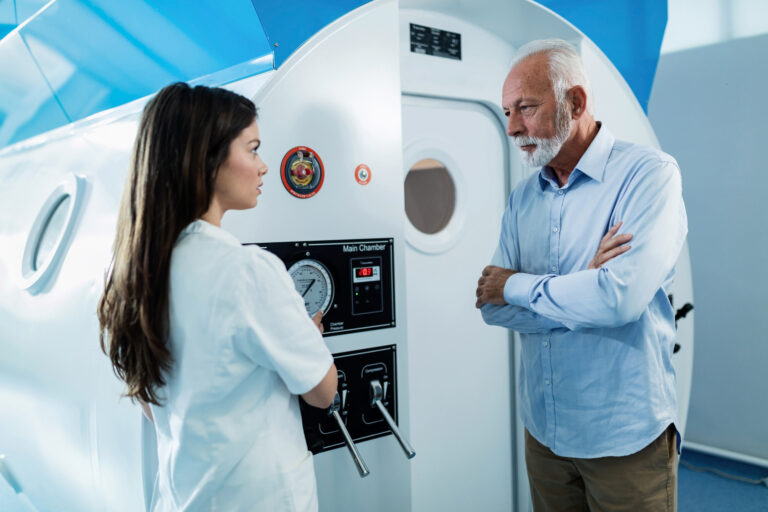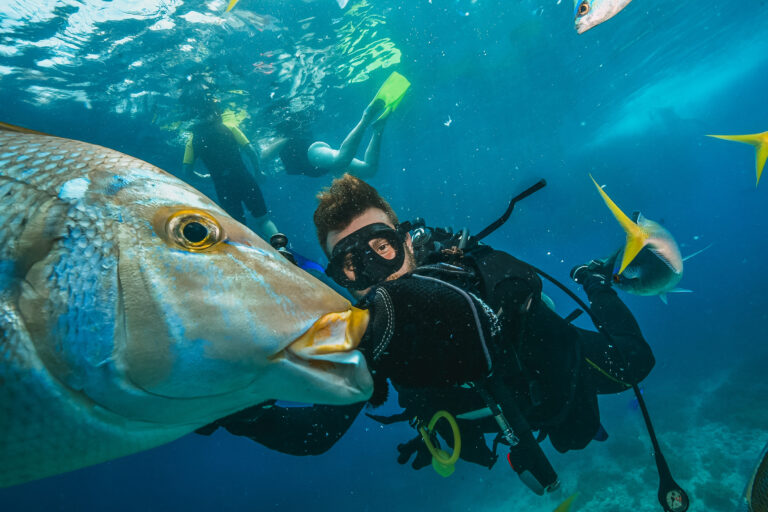SCUBA DIVERS’ TRAVEL GUIDE TO Portugal
If you are looking for a scuba diving destination that combines history, culture, and natural beauty, look no further than Portugal. This European country offers scuba diving opportunities all year and all around its coastline and islands. Divers can explore historical wrecks, diverse marine life, underwater caves, crevices, and rocky reefs. Some of the best spots for scuba diving in Portugal are Haliotis in Santa Maria, Fonte da Telha, Sesimbra, Luis Saldanha Marine Reserve, Berlengas Islands, Azores, and Madeira. Portugal scuba diving is suitable for all experience levels and provides training to beginners. Whale watching season is from April to October, though whales can be seen all year. Sunfish can be seen in summer at the Berlengas Islands. Portugal is possibly the most diverse diving destination in Europe. Whether you want to dive over a live volcano in the Azores, enjoy the mild climate of Madeira, or discover the secluded sites of the Algarve coast, Portugal has something for every scuba diver.
LOCATION AND GEOGRAPHY
Portugal, with its extensive Atlantic coastline stretching over 800 kilometers, offers a diverse and captivating underwater landscape for scuba divers. The mainland’s coastal geography varies from the rugged, cliff-lined shores of the Algarve in the south, renowned for its warm waters, hidden coves, and rich marine life, to the more temperate, yet equally vibrant, diving spots near Lisbon and Porto in the west and north. The Azores, an archipelago of nine volcanic islands situated about 1,500 kilometers west of Lisbon, is a magnet for divers seeking encounters with pelagic species amidst dramatic underwater topography. Madeira, another autonomous archipelago located southwest of Portugal, boasts a subtropical climate and a unique mix of Mediterranean and Atlantic marine biodiversity. These islands are surrounded by deep oceanic waters, offering spectacular wall dives and the chance to explore an array of shipwrecks, volcanic caves, and coral reefs teeming with life. Portugal’s varied underwater terrain, influenced by both its geographic location at the confluence of different ocean currents and its rich maritime history, makes it a premier European scuba diving destination.
VISA AND ENTRY REQUIREMENTS
Before embarking on a scuba diving adventure in Portugal, it is essential to understand the visa and entry requirements for this captivating destination. As a member of the European Union and the Schengen Area, Portugal allows visa-free entry for citizens of EU countries, the EEA, Switzerland, and travelers from several other nations for stays of up to 90 days within a 180-day period for tourism purposes. Non-EU citizens from countries that do not have a visa exemption agreement with the Schengen Area will need to apply for a Schengen Visa, which permits travel within the member states. It is important to check the latest information from the Portuguese consulate or embassy in your home country, as visa policies can change. Additionally, ensure your passport is valid for at least six months beyond your planned departure date from Portugal. Upon arrival, divers from outside the Schengen Area may be asked to provide proof of return or onward travel, sufficient funds for the duration of their stay, and evidence of accommodation arrangements, such as a dive resort booking. Always carry your identification and travel documents when diving, as random checks can occur even within Schengen borders.
GETTING TO Portugal
Getting to Portugal for an unforgettable scuba diving adventure is a straightforward journey for travelers from around the globe. The country is well-connected by air, with major international airports in Lisbon (Lisbon Portela Airport), Porto (Francisco Sá Carneiro Airport), and Faro (Faro Airport) serving as primary gateways. These airports offer a range of flights from Europe’s major cities, as well as intercontinental connections from the Americas, Africa, and Asia. For those within Europe, driving to Portugal can be a scenic option, with an extensive network of highways connecting it to Spain, its only land border. Train travel is another alternative, with international rail services linking Portugal to neighboring Spain and further into Europe. Once in Portugal, a variety of domestic flights, trains, buses, and car rentals are available to transport you to the country’s stunning coastal regions, where the Atlantic beckons with its underwater marvels. Whether you’re arriving by land, air, or sea, Portugal’s diverse dive sites and rich marine life are easily accessible, promising a scuba diving experience that caters to both beginners and seasoned divers alike.
BEST TIME TO DIVE
Portugal offers a scuba diving experience that is rich in diversity, with the best time to dive generally considered to be from May to October when the weather is warm and the waters are calmer. During these months, the Atlantic Ocean gifts divers with clearer visibility and a comfortable water temperature ranging from 16°C to 24°C (61°F to 75°F), depending on the region. The Algarve, in the south, is particularly popular, boasting the warmest and most stable conditions, ideal for exploring its underwater caves, reefs, and abundant marine life. However, for those willing to brave cooler temperatures, diving outside this peak season can also be rewarding, with fewer tourists and the chance to encounter different species. Divers should note that the Azores, an autonomous region of Portugal, has a slightly different optimal season, running from June to November, when migratory species such as manta rays and blue sharks visit its waters, making it a unique diving destination within Portugal.
ACCOMMODATION OPTIONS
Portugal, with its extensive coastline and enchanting islands, offers a plethora of accommodation options for scuba divers seeking to explore its underwater marvels. From the sun-kissed Algarve in the south to the volcanic archipelagos of the Azores and Madeira, divers can find a range of places to stay that cater to different preferences and budgets. Coastal resorts and dive-centric hotels often provide gear rental and have partnerships with local dive shops, ensuring a seamless diving experience. For a more intimate setting, charming bed and breakfasts and boutique guesthouses are nestled in the picturesque seaside towns, offering personalized service and local charm. Adventurous divers might opt for liveaboard experiences, particularly around the Azores, where they can wake up at new dive sites each day. Meanwhile, eco-lodges and sustainable retreats appeal to those looking to minimize their environmental footprint while enjoying the rich marine biodiversity. Whether you’re seeking luxury or simplicity, Portugal’s accommodations are as diverse as its underwater landscapes, ensuring every diver finds a comfortable base to return to after a day spent beneath the waves.
DIVE OPERATORS AND DIVE SHOPS
Portugal, with its extensive coastline and marine reserves, offers a plethora of dive experiences that cater to both beginners and seasoned divers. Dive operators and shops are abundant, particularly in the Algarve region, the Azores, and Madeira, where the Atlantic waters teem with life. These establishments are well-equipped and staffed by professional, multilingual instructors who prioritize safety and environmental sustainability. They offer a range of services, from equipment rentals and air fills to guided dives and certification courses. Many shops also organize special excursions to explore underwater caves, shipwrecks, and vibrant coral reefs. It’s advisable to check for PADI or SSI affiliation for assurance of quality training and service standards. With the dive operators’ local knowledge, divers are guaranteed to experience the best sites, such as the Ocean Revival Park near Portimão or the Princess Alice Bank in the Azores, where the confluence of currents attracts manta rays and other pelagic species. Always remember to book in advance during peak season to secure your underwater adventure in Portugal’s captivating waters.
TRANSPORTATION WITHIN Portugal
In Portugal, transportation options to reach the country’s prime scuba diving spots are varied and convenient, catering to divers of all preferences. The mainland is well-connected by an efficient network of highways, making car rentals a popular choice for those who value flexibility and the ability to explore coastal areas at their own pace. For those who prefer public transport, buses and trains run regularly to coastal towns from major cities like Lisbon and Porto, with services often increasing during the summer months to accommodate the influx of tourists. For island destinations such as the Azores or Madeira, domestic flights are readily available and offer a quick and scenic route to these diving havens. Additionally, some dive operators in these archipelagos provide airport transfers and local transportation as part of their dive packages. Whether you’re looking to dive into the rich marine life of the Atlantic or explore underwater caves and shipwrecks, Portugal’s transportation infrastructure allows for easy access to a diverse array of dive sites.
CURRENCY AND PAYMENT METHODS
In Portugal, the official currency is the Euro (€), which is widely accepted across the country, including in popular scuba diving destinations such as the Algarve, Madeira, and the Azores. Credit and debit cards are commonly used, and ATMs are readily available in urban areas and tourist hotspots, allowing for easy access to cash. However, when visiting more remote dive sites or smaller islands, it’s advisable to carry a sufficient amount of cash, as card facilities may not always be available. Diving centers typically accept major international credit cards, but it’s prudent to check in advance, especially if you plan to make significant purchases such as dive packages or equipment. Some establishments may also offer discounts for cash payments. It’s also worth noting that while bargaining is not customary in Portugal, prices for dive services are usually fixed, but you can look out for package deals or group discounts. Always ensure you have a valid form of identification with you when making card transactions, as this is often required by merchants.
LANGUAGE AND COMMUNICATION
When diving in Portugal, communication both above and below the surface is predominantly conducted in Portuguese, the official language of the country. However, due to the popularity of Portugal as a scuba diving destination, English is widely spoken within the diving community, especially by staff at dive centers and on dive boats. It is advisable for divers to familiarize themselves with basic Portuguese phrases as a courtesy, as well as key diving terms and hand signals, which are universally recognized among divers. Dive briefings may be given in multiple languages, depending on the composition of the group. It’s also beneficial to learn the local names of common marine species and dive sites to enhance your understanding and appreciation of the underwater environment. In any case, clear and effective communication is essential for safety and enjoyment, so ensure that you are comfortable with the language or translation arrangements before embarking on your underwater adventures in Portugal.
LOCAL CULTURE AND ATTRACTIONS
Portugal, with its rich maritime history and vibrant coastal culture, offers scuba divers a delightful blend of underwater exploration and topside enchantment. After reveling in the diverse marine life and exploring the numerous wrecks off the Algarve coast or the Azores, divers can immerse themselves in the local culture by savoring the exquisite Portuguese cuisine, characterized by fresh seafood and the famous pastéis de nata. The country’s historical tapestry is vividly displayed in the architecture of UNESCO World Heritage Sites, such as the Jerónimos Monastery and the Tower of Belém in Lisbon, or the charming old town of Porto with its traditional Rabelo boats and the iconic Dom Luís I Bridge. Festivals like Festa de São João in Porto and the lively streets of Lisbon’s Bairro Alto at night offer a glimpse into the Portuguese joie de vivre. For a more serene experience, the mosaic of picturesque villages, vineyards, and olive groves in the Douro Valley provides a tranquil counterpoint to the underwater thrills, making Portugal a destination where the allure of the sea is matched only by the charm of the land.
CULTURAL ETIQUETTE AND TIPS
When scuba diving in Portugal, it’s important to embrace the local customs and show respect for the vibrant culture that surrounds this maritime nation. Portuguese people are known for their warm hospitality, so greet dive operators and local fishermen with a friendly “Bom dia” (Good morning) or “Boa tarde” (Good afternoon), and always express gratitude with a heartfelt “Obrigado” (Thank you) for their services. It’s customary to engage in a bit of small talk before getting down to business, so be patient and enjoy the personal interaction. When diving, be mindful of protected marine areas and historical underwater sites, as the Portuguese value their natural and historical heritage deeply. It’s also considered polite to tip your dive guides and boat crew, with 5-10% of the total cost being a standard gesture of appreciation. Above all, show respect for the ocean and the local environment by not touching marine life or collecting souvenirs from the sea, as this aligns with the Portuguese ethos of conserving the beauty of their coastal waters for future generations.
LOCAL LAWS AND REGULATIONS RELEVANT TO TOURISTS
When planning a scuba diving trip to Portugal, it is essential for tourists to familiarize themselves with local laws and regulations to ensure a safe and lawful experience. Portugal requires all divers to be certified by a recognized diving organization and to carry proof of their certification, along with a logbook documenting their dives. Diving within the boundaries of Marine Protected Areas (MPAs) is strictly regulated, and in some cases, may require special permits or be subject to specific rules regarding maximum depth and distance from the shore. It is prohibited to remove any marine life or artifacts from the underwater environment, and divers must adhere to fishing laws, which dictate no-take zones and protected species. Additionally, the use of dive flags is mandatory to alert boats to the presence of divers below. Tourists should also be aware that diving insurance is compulsory in Portugal, and proof of insurance may be requested by dive operators. To avoid any legal complications, it is advisable to contact local dive shops or authorities for the most current information on regulations before diving.
SAFETY TIPS AND EMERGENCY CONTACTS
When diving in Portugal’s diverse underwater landscapes, safety should be your paramount concern. Always dive within your certification limits and be familiar with the use of your equipment. It’s essential to check weather conditions before setting out, as the Atlantic can be unpredictable. Dive with a buddy and ensure you both know the dive plan and emergency procedures. Portugal requires divers to have a diving insurance, so make sure yours is up to date and covers health and hyperbaric treatment. Keep the contact information for the nearest decompression chamber and emergency services with you at all times; DAN Europe (Divers Alert Network) provides emergency assistance and can be reached at +39 06 4211 8685. Additionally, the national emergency number in Portugal is 112, which can be dialed for immediate assistance. Remember to respect local regulations, marine life, and always signal your entry and exit points with a dive flag to alert boats in the vicinity. By following these safety tips and having emergency contacts readily available, you can ensure a more secure and enjoyable diving experience in the beautiful waters of Portugal.
HEALTH AND TRAVEL INSURANCE
When planning a scuba diving trip to Portugal, it’s crucial to consider your health and travel insurance options. The country’s diverse underwater landscapes, from the Algarve’s shipwrecks to the Azores’ volcanic archipelagos, offer breathtaking experiences for divers, but they also come with inherent risks. Ensure that your travel insurance policy includes comprehensive coverage for scuba diving activities, as standard policies may exclude such specialized sports. Look for policies that cover hyperbaric treatment, medical evacuation, and repatriation in case of a diving emergency. Additionally, verify that your insurance provides adequate healthcare coverage within Portugal, as the European Health Insurance Card (EHIC) or its replacement, the UK Global Health Insurance Card (GHIC), may only offer limited benefits for non-residents. By securing the right insurance, you can dive into Portugal’s marine wonders with peace of mind, knowing that you’re protected against unforeseen circumstances.

